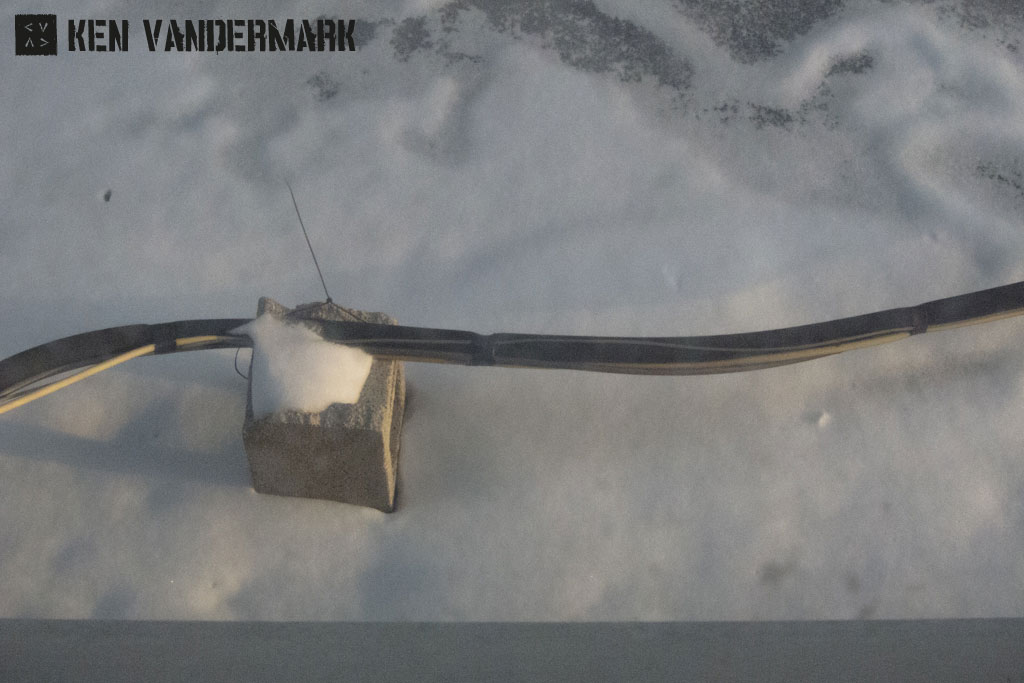

1. “Back when I was starting out as a composer there were only about thirty or forty serious composers in the United States. It was hard going; we didn’t get many performances. You didn’t think of being a composer as any sort of profession, you wrote music because you had to. It’s unfortunate that some young composers today are so inclined to a careerist approach, deciding what kind of music to write based on the grants or commissions they might garner as a result. Instead of concerning themselves with being rich or successful, I wish they’d spend more time thinking about what they had to say as composers. I understand that there are many more composers trying to get their music performed, but I still don’t think it’s the right attitude.”
-Elliot Carter (2005), from “Fountain Of Youth,” Signal To Noise, Spring 2006/Issue 41, pg. 19.
2. “If you are a painter, meaning [is] the paintings you make; if you are an observer, meaning [is] what you see.”
-Jasper Johns (1969), from “Jasper Johns: An Appraisal,” by Joseph E. Young, Art International 13/no. 7, pg. 54.
3. “Art is produced by a succession of individuals expressing themselves; it is not a question of progress. Progress is an enormous pretension on our part.”
-Marcel Duchamp (1946), “The Writings of Marcel Duchamp,” ed. Michel Sanouillet and Elmer Peterson, (Da Capo Press, 1988), pg. 123.
4. “Individualism makes itself more rugged, not less, by learning where to merge itself in a common effort.”
-A. Hyatt Mayor (late 1940’s), in Stanley William Hayter et al., “Atelier 17,” (Wittenborn, Schultz, 1949), pg 4, 6.
5. “Every one of us has the urge to be creative in relation to our time- the time to which we belong may work out to be our thing in common.”
-Hans Hofmann (early 1950’s), in Robert Motherwell and Ad Reinhardt, eds., “Modern Artists in America, No. 1,” (Wittenborn, Schultz, 1951), pg. 10.
6. “Innovators come at the end of a period. Cezanne gave the finishing touches to Impressionism before he came face to face with his ‘little sensation.’”
-Willem de Kooning (1950’s), from “The Collected Writings of Willem de Kooning,” (Hanuman Books, 1988), pg. 56.
7. “Painting is ‘impure.’ It is the adjustment of ‘impurities’ which forces painting’s continuity.”
-Philip Guston (1960) quoted in “It Is,” Spring 1960, pg. 38.
8. “The concepts of my school are fundamental. But a true artist could violate them all.”
-Hans Hofmann, quoted by Harold Rosenberg, printed in “Art News,” April 1966, pg. 21.
9. “Being anti-traditional is just as corny as being traditional.”
-Willem de Kooning (1958), from “Is Today’s Artist With or Against the Past?,” Art News, Summer 1958, pg. 27.
10. “Too mechanical an historical approach, with its nineteenth-century idea of progress may be responsible for the ‘tradition of the new’ and the resulting idea of ‘obsolescence in art.’ “
-Ilya Bolotowsky (1969), from “On Neoplasticism and My Own Work: A Memoir,” in Leonardo, July 1969, pg. 221-22.
11. “Take an object. Do something to it. Do something else to it.”
-Jasper Johns (1965), from “Sketchbook Notes,” Art and Literature, Spring 1965, pg. 192.
12. “You belong to a certain time. You are yourself the result of this time. You are also the creator of this time.”
-Hans Hofmann (1966), from “A Conversation with Hans Hofmann,” by Irma Jaffe, Artforum, January 1971, pg. 37.
© 2024 Ken Vandermark – musician & composer | Disclaimer